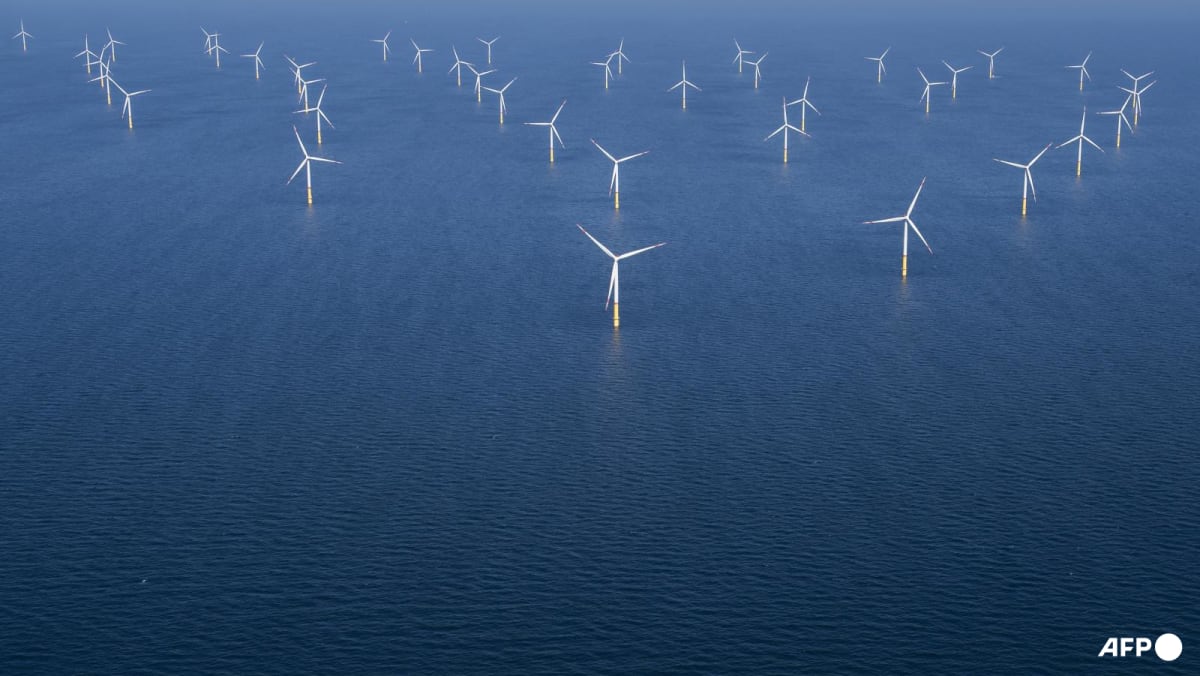SUPERCHARGED STORMS
Powerful hurricanes Helene and Milton made landfall in Florida within days of each other, killing over 256 people and causing tens of billions of dollars of damage across multiple states.
Scientists confirmed in the aftermath that climate change had supercharged these storms.
“All aspects of this event were amplified by climate change to different degrees. We’ll see more of the same as the world continues to warm,” said Dr Ben Clarke, a researcher at Imperial College London.
Dr Clarke co-authored a report that found Helene’s winds were 11 per cent stronger, and rainfall 10 per cent heavier, because of the warming climate.
Despite those findings, Mr Trump continued to express his ongoing scepticism of climate change, calling it “one of the greatest frauds in history”, during a speech in Manhattan after the disaster.
“Storms are getting stronger and stronger,” President Joe Biden said at a briefing in North Carolina, while surveying damage from Helene.
“Nobody can deny the impact of the climate crisis anymore. They must be brain dead if they do,” he said.
Still, for observers, Ms Harris has failed to re-capture the image of being a strong advocate on climate issues throughout her period of campaigning to be president.
She made only a passing reference to her party’s green agenda while being nominated as the Democratic presidential nominee in August.
In fact, debate or discourse about climate change, even as part of the IRA, has barely featured in either candidate’s election campaign.
The IRA directs some US$400 billion toward clean energy initiatives, as part of the country’s goal to achieve a net-zero carbon economy by 2050. This includes tax incentives, infrastructure funding and community support and projects to create up to 1 million new jobs by 2030.
Yet despite the vast sums of public funding already being allocated towards industries installing wind turbines and solar panels, building electric vehicles and assembling batteries, Ms Harris has appeared reluctant to lean into a pro-planet stance on the hustings.
That is in part due to fears of a public backlash against an overly green agenda perceived to threaten certain communities reliant on the fossil-fuel industry in key battleground states, and the powerful lobbyists behind the industries themselves, according to Dr Carolyn Kissane, the founding director of the SPS Energy, Climate Justice and Sustainability Lab and associate dean at the NYU Center for Global Affairs.
“It’s a very fine line in the United States for a politician when it comes to energy and climate,” she said.
“Harris is viewed more climate-forward and has historically been harder on big oil. However, as the nominee, it would be a mistake for her to come out as an ardent opponent of big oil and gas, because one, they are a very large lobby, and two, it’s very scary for most Americans to imagine that their energy prices will be higher.
“I think her campaign has to balance being an advocate for addressing climate change while not coming across as being very anti-hydrocarbons and hydrocarbon production in the United States,” Dr Kissane said.
According to analysis by Open Secrets, an independent group tracking money in US politics, in 2022, the oil and gas industry spent approximately US$124.4 million on federal lobbying.
The industry’s combined lobbying, political contributions and advertising efforts to oppose climate change legislation outspent climate advocacy groups by 27 to 1 between 2008 and 2018, the Pennsylvania Capital-Star news site has found.













